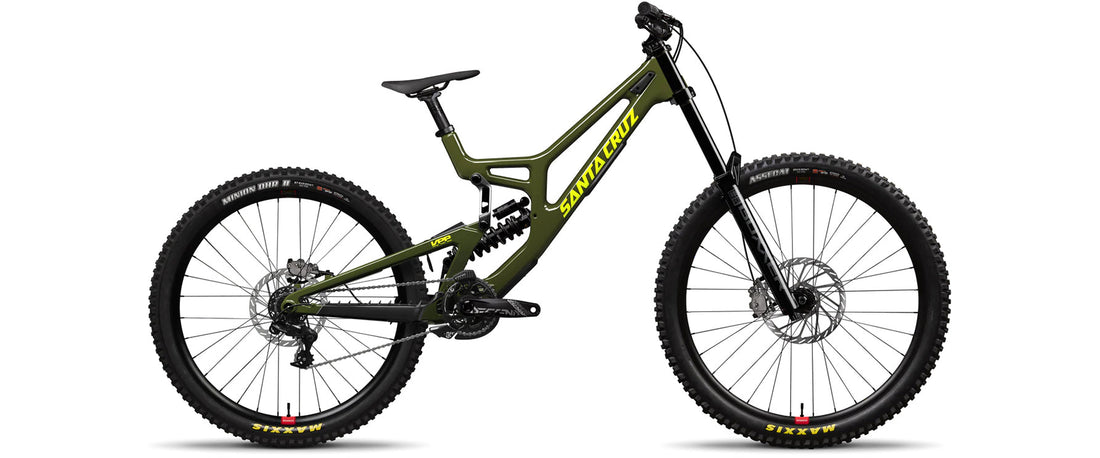
XC vs AM vs Trail vs Enduro vs Downhill: Decoding Mountain Bike Types for Your Perfect Ride
Share
Mountain Bike Categories Decoded: XC vs Trail vs AM vs Enduro vs DH
Technical guide to suspension travel, frame geometry, and terrain capabilities across all mountain bike disciplines
XC

Ideal For:
- Racing & competitive events
- Long-distance endurance riding
- Fast, smooth singletrack
- Weight-conscious riders
Trail

Ideal For:
- Daily trail riding versatility
- Pump tracks & flow trails
- Mixed terrain exploration
- Riders seeking balance
AM

Ideal For:
- Technical terrain mastery
- Backcountry adventures
- Steep descents & climbs
- All-day endurance riding
Enduro

Ideal For:
- Enduro racing stages
- Extreme downhill sections
- Big mountain terrain
- Technical jump lines
DH

Ideal For:
- Bike park shuttle runs
- World Cup downhill courses
- Big jumps & drops
- Maximum speed stability
Technical Deep Dive: Engineering Differences in Mountain Bike Categories
Understanding the core technical distinctions between Cross-Country (XC), Trail, All-Mountain (AM), Enduro, and Downhill (DH) mountain bikes is essential for selecting your perfect off-road machine. Each category features purpose-built engineering:
Key Performance Differentiators
Suspension Design Evolution: From XC's efficient 100mm travel to DH's massive 200mm+ systems, suspension kinematics directly impact control. Our Enduro bikes feature progressive leverage ratios for big-hit absorption while maintaining mid-stroke support.
Geometry Matters: Head tube angles range from XC's nimble 69° to DH's ultra-slack 62°. Modern trail bikes utilize 65-67° head angles for balanced handling, while AM bikes add adjustable geometry chips for terrain-specific tuning.
Frame-by-Frame Technical Breakdown
XC Bikes: Prioritize power transfer with high-stiffness carbon layups and steep seat tube angles (74-76°). Our XC race frames weigh under 900g while maintaining ISO-Mountain compliance standards.
Trail Bikes: Feature the most advanced suspension platforms with twin-link designs that provide 130mm of active travel while remaining efficient on climbs. Integrated storage solutions keep tools accessible without compromising frame stiffness.
AM Bikes: Utilize reinforced pivot systems and oversized bearings to withstand technical terrain. Our AM models feature asymmetric chainstays that balance drivetrain stiffness with rear-wheel compliance.
Enduro Bikes: Incorporate DH-inspired features like 800mm handlebars and 200mm dropper posts. Frame protection kits come standard, with rubberized downtube shields and chainstay guards.
DH Bikes: Showcase gravity-optimized designs with 40% increased torsional stiffness over enduro frames. High-pivot idler pulley systems eliminate pedal kickback during square-edge impacts.
Component Specifications Across Categories
| Component | XC | Trail | AM | Enduro | DH |
|---|---|---|---|---|---|
| Brakes | 160mm rotors | 180mm rotors | 200mm front/180mm rear | 220mm front/200mm rear | 220mm 4-piston |
| Drivetrain | 1x12 10-52T | 1x12 10-52T | 1x12 10-52T | 1x7 DH specific | Single-speed |
| Wheels | 29" carbon | 29" alloy/carbon | 29"/27.5" mixed | 27.5" DH casing | 27.5" triple-wall |
Terrain-Specific Recommendations
For technical climbs: XC and Trail bikes with steeper seat angles position you optimally for efficient pedaling
For alpine descents: AM and Enduro bikes offer the perfect balance of control and climbing capability
For bike park dominance: DH bikes provide maximum stability with their ultra-slack head angles and long wheelbases
